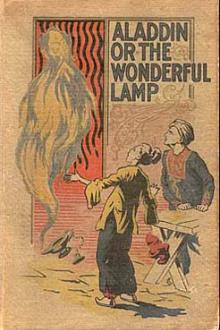The Yellow Claw by Sax Rohmer (best short novels txt) 📗

- Author: Sax Rohmer
Book online «The Yellow Claw by Sax Rohmer (best short novels txt) 📗». Author Sax Rohmer
Soames became conscious of a new security. He set about his duties that morning with a greater alacrity than usual, valeting one of the living dead men—a promising young painter whom he chanced to know by sight—with a return to the old affable manner which had rendered him so popular during his career as cabin steward.
He felt that he was now part and parcel of Kan-Suh Concessions; that Kan-Suh Concessions and he were at one. He had yet to learn that his sense of security was premature, and that his added knowledge might be an added danger.
When Said brought his lunch into his room, he delivered also a slip of paper bearing the brief message:
“Go out 6.30—return 10.”
Mr. Soames uncorked his daily bottle of Bass almost gaily, and attacked his lunch with avidity.
XVIII THE WORLD ABOVE
The night had set in grayly, and a drizzle of fine rain was falling. West India Dock Road presented a prospect so uninviting that it must have damped the spirits of anyone but a cave-dweller.
Soames, buttoned up in a raincoat kindly lent by Mr. Gianapolis, and of a somewhat refined fit, with a little lagoon of rainwater forming within the reef of his hat-brim, trudged briskly along. The necessary ingredients for the manufacture of mud are always present (if invisible during dry weather) in the streets of East-end London, and already Soames' neat black boots were liberally bedaubed with it. But what cared Soames? He inhaled the soot-laden air rapturously; he was glad to feel the rain beating upon his face, and took a childish pleasure in ducking his head suddenly and seeing the little stream of water spouting from his hat-brim. How healthy they looked, these East-end workers, these Italian dock-hands, these Jewish tailors, these nondescript, greasy beings who sometimes saw the sun. Many of them, he knew well, labored in cellars; but he had learnt that there are cellars and cellars. Ah! it was glorious, this gray, murky London!
Yet, now that temporarily he was free of it, he realized that there was that within him which responded to the call of the catacombs; there was a fascination in the fume-laden air of those underground passages; there was a charm, a mysterious charm, in the cave of the golden dragon, in that unforgettable place which he assumed to mark the center of the labyrinth; in the wicked, black eyes of the Eurasian. He realized that between the abstraction of silver spoons and deliberate, organized money-making at the expense of society, a great chasm yawned; that there may be romance even in felony.
Soames at last felt himself to be a traveler on the highroad to fortune; he had become almost reconciled to the loss of his bank balance, to the loss of his place in the upper world. His was the constitution of a born criminal, and, had he been capable of subtle self-analysis, he must have known now that fear, and fear only, hitherto had held him back, had confined him to the ranks of the amateurs. Well, the plunge was taken.
Deep in such reflections, he trudged along through the rain, scarce noting where his steps were leading him, for all roads were alike to-night. His natural inclinations presently dictated a halt at a brilliantly lighted public house; and, taking off his hat to shake some of the moisture from it, he replaced it on his head and entered the saloon lounge.
The place proved to be fairly crowded, principally with local tradesmen whose forefathers had toiled for Pharaoh; and conveying his glass of whisky to a marble-topped table in a corner comparatively secluded, Soames sat down for a consideration of past, present, and future; an unusual mental exercise. Curiously enough, he had lost something of his old furtiveness; he no longer examined, suspiciously, every stranger who approached his neighborhood; for as the worshipers of old came by the gate of Fear into the invisible presence of Moloch, so he—of equally untutored mind—had entered the presence of Mr. King! And no devotee of the Ammonite god had had greater faith in his potent protection than Soames had in that of his unseen master. What should a servant of Mr. King fear from the officers of the law? How puny a thing was the law in comparison with the director of that secret, powerful, invulnerable organization whereof to-day he (Soames) formed an unit!
Then, oddly, the old dormant cowardice of the man received a sudden spurring, and leaped into quickness. An evening paper lay upon the marble top of the table, and carelessly taking it up, Soames, hitherto lost in imaginings, was now reminded that for more than a week he had lain in ignorance of the world's doings. Good Heavens! how forgetful he had been! It was the nepenthe of the catacombs. He must make up for lost time and get in touch again with passing events: especially he must post himself up on the subject of... the murder....
The paper dropped from his hands, and, feeling himself blanch beneath his artificial tan, Soames, in his old furtive manner, glanced around the saloon to learn if he were watched. Apparently no one was taking the slightest notice of him, and, with an unsteady hand, he raised his glass and drained its contents. There, at the bottom of the page before him, was the cause of this sudden panic; a short paragraph conceived as follows:—
REPORTED ARREST OF SOAMES
It is reported that a man answering to the description of Soames, the butler wanted in connection with the Palace Mansions outrage, has been arrested in Birmingham. He was found sleeping in an outhouse belonging to Major Jennings, of Olton, and as he refused to give any account of himself, was handed over, by the gentleman's gardener, to the local police. His resemblance to the published photograph being observed, he was closely questioned, and although he denies being Luke Soames, he is being held for further inquiry.
Soames laid down the paper, and, walking across to the bar, ordered a second glass of whisky. With this he returned to the table and began more calmly to re-read the paragraph. From it he passed to the other news. He noted that little publicity was given to the Palace Mansions affair, from which he judged that public interest in the matter was already growing cold. A short summary appeared on the front page, and this he eagerly devoured. It read as follows:—
PALACE MANSIONS MYSTERY
The police are following up an important clue to the murderer of Mrs. Vernon, and it is significant in this connection that a man answering to the description of Soames was apprehended at Olton (Birmingham) late last night. (See Page 6). The police are very reticent in regard to the new information which they hold, but it is evident that at last they are confident of establishing a case. Mr. Henry Leroux, the famous novelist, in whose flat





Comments (0)